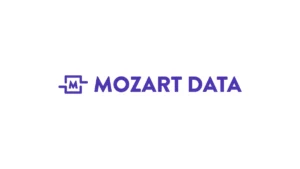
-
In December 2020, Kritika Dusad joined Mozart Data as their third engineer after working as a contract Python Developer for Apple.
-
In this blog, Kritika dispels some myths about joining an early-stage start-up and sheds some light on why she decided to join Mozart Data!
Why I Joined Mozart Data
Prior to joining Mozart Data, I was a contract Python Developer for Apple. At Apple, I was building customized data pipelines for machine learning engineers. While I enjoyed my time at Apple, I was interested in building a more scalable, user-facing product.
All in all, I learned that I really loved thinking about data pipelines, but I also wanted to build a product from the ground up, and I wanted room to be more autonomous and inventive in my problem-solving.
I found out about Mozart Data at a virtual career fair and was struck by how the product was trying to solve a common data problem in a scalable manner. Using Mozart’s product, customers could build their data stack within a few minutes.
Here are three other reasons that motivated me to join Mozart Data:
1. I am building product features from the ground up.
At my previous job, there were less opportunities to build features from the ground up. However, at Mozart Data, I have been able to build multiple features and components from scratch. Most of my day is spent on design, implementation, testing, and maintenance of features. I have also been able to grow my skills in different parts of the tech stack that includes Python, Django, React, Typescript, Django, and Postgres.
2. As an early team member, I’m able to help create a supportive and blameless company culture.
As one of the early engineers at Mozart, I have a lot of say and impact on the culture of the engineering team and company as a whole. At Mozart, handling challenges is as simple as having a conversation with a team member, or sending a message over Slack to resolve a question or brainstorm solutions. People are really open to chatting and hashing out ideas and going back/forth on something. While the team is remote, I feel extremely connected and supported.
When it comes to engineering problems in particular, we focus less on blame and more on the composition of issues in the system that allowed it to happen. If something breaks, we narrow it down to: why does the system have something in place that can break vs. why did you break it. We know that everyone will make mistakes, so it’s a matter of fool-proofing our product so that it prevents mistakes from happening in the first place.
Something else we do that’s really helpful in improving processes is bi-weekly retro meetings where we discuss what’s going well, and where there’s room for improvement. We also host regular bi-weekly meetings where team members can present technical details of projects they’ve been working on. These meetings facilitate an environment of growth, constant curiosity, and regular feedback.
Additionally, we host Hackathons every few months, which encourages us to work with people not on our team. We also have fun monthly events, like cookie decorating, painting, and Vietnamese coffee-making!
3. I am building a product that has a huge impact on our customers’ growth.
At Mozart, everything I build and every bit of code I write has a huge effect on the product and in turn the customers. The work is rewarding, and I feel a sense of ownership over what we are building.
I recently worked on a project that will help users automate their data pipelines. The vision for this project was actually written in one of Mozart’s job postings on TripleByte. When I was interviewing, I was hoping that I’d get to work on this project.
Our customers write SQL queries to understand and gain insights from their data. These SQL queries are called transforms. Currently, users schedule these transforms to run on a fixed frequency. With automated data pipelines, users will be able to run transforms automatically. This can save start-up teams hours of time and compute, and improve metrics across a ton of tech-focused solutions. I get to harness my creativity and skill to build a product that will make a change for engineers and start-ups across industries.
Currently, I’m about a year and a half into my role and am enjoying every minute of it. These days, I split my time between coding, ideating, and pitching in on the company’s product features. I’m getting a ton of hands-on opportunities to develop my engineering muscles.
For those interested in making the jump into the start-up world, I hope you’ll consider Mozart Data in your search. If you have any questions about my experience or more questions about the company (or want to join my team!), I’d love to connect and hear about your story!
If you’re curious about Mozart Data, please check out our site.
If you want to contact Kritika, feel free to message her through LinkedIn!

